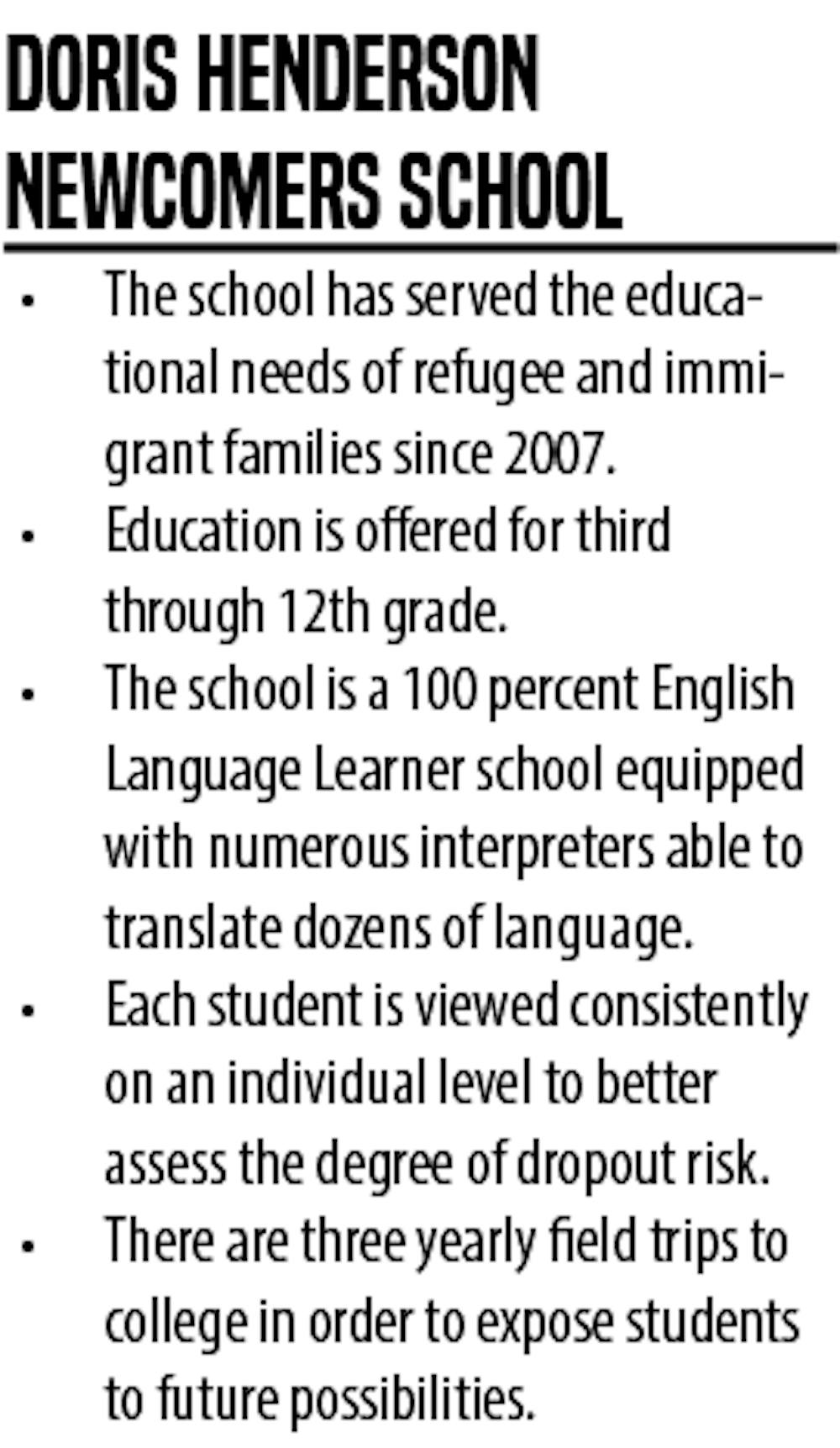El Salvador, Honduras, the Democratic Republic of the Congo and Pakistan are examples of four countries rife with acts of unspeakable violence, often carried out by the likes of rebel militant forces run amok, drug cartel members, or radical terrorist organizations.
Now, 340 immigrant and refugee children from various countries, including those mentioned, face a whole new and daunting life challenge — learning how to speak English in their new home nation, the United States.
Elon’s School of Education occasionally sends its students to shadow and assist teachers at The Newcomers school.
Marna Winter, lecturer in education and director of education outreach at Elon, said outreach efforts at schools like the Newcomers School are used to train Elon students to take innovative approaches in their teaching methods.
“We want to make sure that every student has opportunities to teach at all different types of schools. Title I schools, non-title II, rural and urban,” Winter said. “We want students to know how to teach in many environments, and to know what it takes.”
She touched on the “Teaching Diverse Learners in Middle and Secondary Schools” course at Elon, one that educates students on effective learning and teaching strategies employed for teaching students of racial, cultural, ethnic, linguistic, socioeconomic, gender and disability diversity.
“An important thing they learn is ‘culturally responsive teaching,’ which is where we make sure students are first aware of their own cultural upbringings before attempting to understand the cultural upbringing of their students,” Winter said. “At first our students struggle in unfamiliar cultural environments, but we expose them so much they become comfortable.”
The Doris Henderson Newcomers School, located in Greensboro, has served the educational needs of refugee and immigrant families since 2007. Their mission statement — “[To] empower students and families through challenging academics and language learning to help them become independent, lifelong learners” — summarizes the role they hope to play in these communities, one that elevates the individual in order to elevate all.
Offering education for third through 12th grade, The Newcomers School is a 100 percent English Language Learner (ELL) school, equipped with numerous interpreters able to translate dozens of languages.
Angel Katona, the Newcomers School’s social worker, is of a small minority in the school’s faculty that has been there since the beginning.
Now in her ninth year, she says the reasons that brought her to the school in the first place are the same that have kept her there.
“I know that every day, I come to work and improve other people’s quality of life. I love providing encouragement to these kids, because sometimes their world is an overwhelming one.”
Katona said that one of the school’s major goals is to discourage dropouts, a common phenomenon in non-English speaking students in the United States.
She says each student is viewed consistently on an individual level to better assess the degree of dropout risk.
To supplement school lessons, the Newcomers School provides students with free daily transportation to and from school, free breakfast and lunch and optional Saturday classes, which parents can attend to learn English along with their children.
“Parental outreach is a large part of what we do,” Katona said. “We want parents to know what their children are learning so that they can offer encouragement and know what to expect.”
While a majority of the families are immigrant families, many are refugees, which actually creates an advantage in receiving aid. Unlike refugee families, immigrants do not have access to free healthcare options or food provision.
To combat the issue, the school recruits physicians and dentists to donate their services. The school also hosts frequent food and clothing drives
Newcomers has even managed to place students into institutions of higher education. They regularly have successful former students come speak with current students to promote the benefits of perseverance.
“Along with bringing in those students, we schedule three yearly field trips to colleges, exposing students to what may lay ahead,” Katona said.
Junior Hunter Gillin, one of Winter’s students, says the benefits of going to teach at places like the Newcomers School benefit everyone equally.
“Visiting the Newcomers School was an inspiring experience as a prospective elementary education teacher. Each of the recently arrived students held a positive attitude and seemed driven despite the hand life had dealt them,” Gillin said. “And shadowing each of the faculty members served as an excellent lesson in culturally responsive teaching.”


